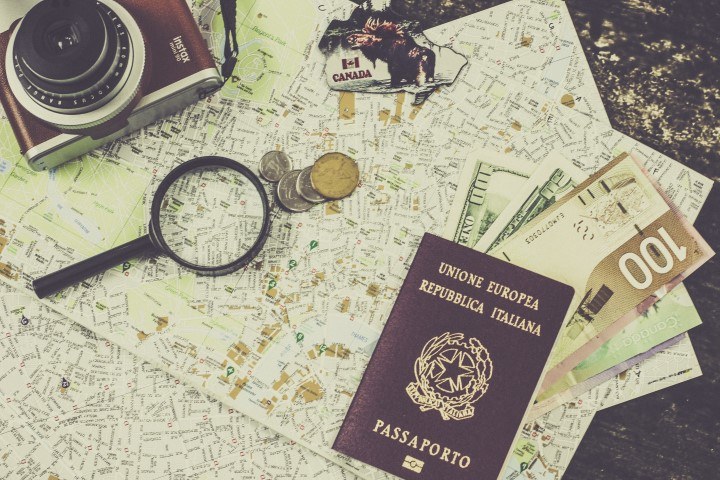What kind of packer are you?
There are people, I’ve heard, who love to pack. But, I’m guessing that most of us would rather put our feet up on the couch while someone else does it for us. You’re about to embark on a wild African adventure after all; you need the rest. Well, below is a list of essentials and extras that you’re not going to want to be without on your next safari – feel free to shout the items out to that family member or friend you sneakily roped in to do the dirty work for you.
![]()
Tips from Our Consultant, Monique Vally
- Baggage on safari should be carefully considered. One soft-sided bag and one smaller piece of hand luggage per person is recommended, weighing not more than 20kg on small Southern Africa charter flights. You may have to pay for an extra seat on a charter flight if the luggage is heavier than 20 kg. This allowance includes camera equipment.
- Don’t forget to make room for a variety of medical supplies—because even the best-planned safaris can come with unexpected twists. A well-stocked kit should include essentials like pain relievers, antihistamines, insect repellent, and rehydration salts to keep you in top shape under the African sun. If you’re venturing into malaria-prone areas, be sure to pack anti-malarial medication as prescribed. And let’s not forget the basics—bandages, antiseptic wipes, and any personal prescriptions you might need. You may be in the wild, but that doesn’t mean you can’t be well-prepared for whatever nature throws your way.
- Days on safari are generally hot and call for shorts and t-shirt. In the mornings and evenings, long-sleeved shirts and pants are better and will also protect you from mosquitoes. For those sensitive to the sun, a loose cotton shirt is a good bet during the day, as is sunscreen. For colder mornings, layering clothing helps keep you warm and is a convenient way to ensure you’re wearing what you need as the day heats up. Some lodges have a dress code, but this is quite liberal, with some restrictions on shorts and swimsuits in the evening.
- Dull and/or neutral colours are suitable for safari; you want to blend in as much as possible with nature. White is not practical. It is best to pack hardy, durable clothing. Best stay away from camo, as in many places in Africa only the military wear camouflage clothing and – in those areas – you might be arrested for it.
Many of the luxury lodges we recommend to our clients have everything you might need, so you don’t need to worry too much – just about the basics and any private items you can’t do without. If you’re travelling with kids, the list will be much longer… You don’t want to forget your young one’s toys or any essential baby products. But feel free to leave the older one’s iPod and Nintendo at home. This is the time to get back to nature. (Watch our video on what to pack for the Kruger Park.)

What To Take
- Sun block, sunglasses, wide brimmed hat, lip balm with an SPF of at least 15
- Blouses/ shirts with long sleeves (even in summer, they will protect you from the sun and from mosquitoes)
- Khaki, green, beige and neutral colours
- T-shirts; shorts or a light skirt; cotton pants or safari trousers for evenings and cooler days
- Fleece or sweater and a warm jacket for game drives (necessary, even in summer)
- Sandals or rubber thongs (for showers and boats, not for general use in the bush as you’re going to want to protect your feet from poisonous snakes, thorns and rocky terrain.
- Jeans or safari trousers for evenings and cooler days
- Some hotels and country clubs require gentlemen to wear a jacket and tie and women to be suitably attired for dinner
- Comfortable hiking or walking shoes
- Light, compact raincoat is a good idea for the summer
- Swimsuit, as most hotels and lodges have swimming pools
- Binoculars and a camera are a must

We Also Recommend
- Cellphone
- Chargers for your cell phone, camera, video camera, etc
- Batteries for small electronics and cameras
- Flashlight
- First aid kit
- Personal toiletries
- Tissues (for when the dust gets up your nose on a game drive)
- Insect repellent and malaria tablets, depending on where you’re going
The andBeyond Safari Shop
If you don’t have any safari kit of your own yet and want to invest in quality, top-of-the-line gear and clothing, try andBeyond‘s new online safari shop. They are a luxury safari travel provider and their shop specialises in gear that is waterproof, windproof, insulating, sun-protective and quick-drying. They use green shipping practices in order to promote sustainable tourism.

Image credit: andBeyond
The Nitty Gritty
- Credit and ATM cards – check to see if your bank has international ATM locations to avoid high fees, and let your bank know you’ll be traveling abroad before you leave
- Contact information
- Driver’s license
- Health-insurance card
- Local guidebooks, bird and animal guidebooks, maps, translation dictionary, etc
- Passport and photocopies of passport
- Photograph of luggage contents in case of loss
- Printouts of reservations
- Travel journal
- Yellow Fever Inoculation certificate – if travelling to Zambia or East Africa, you need to have a yellow fever inoculation (no less than 10 days prior to travel) and will need to have a certificate/card as proof when entering the country.

Ready, set, go! Contact us for more information and to start planning your African safari of a lifetime! Read more about what to pack for a safari in the Kruger National Park on our website.
Great, now all we need are the tickets for the flight …